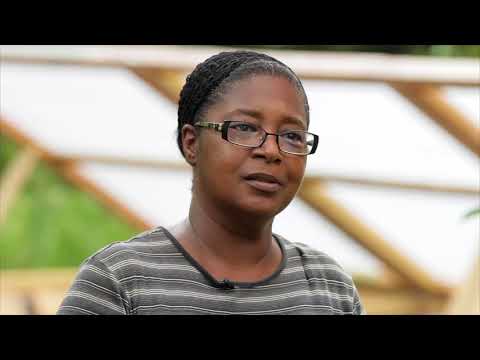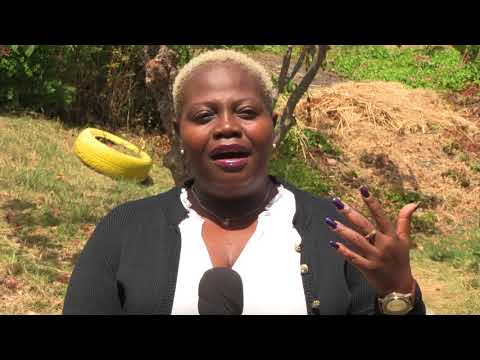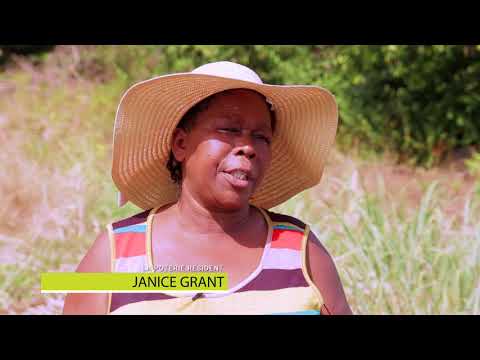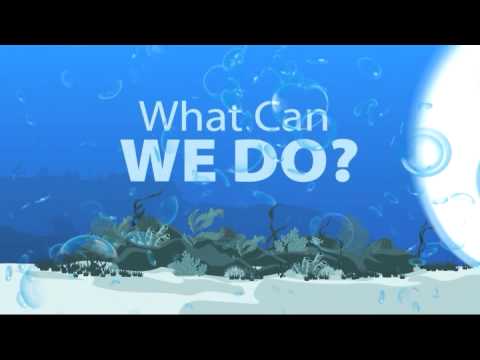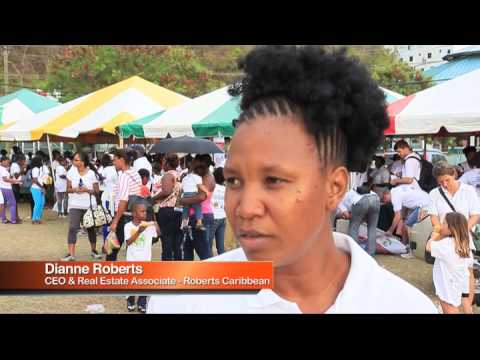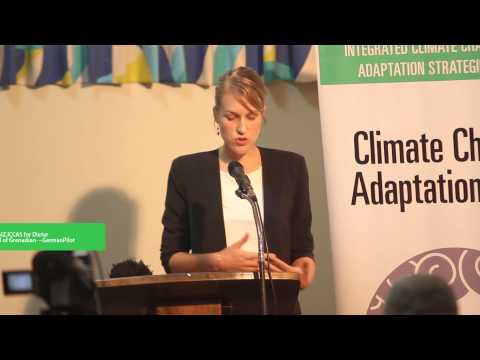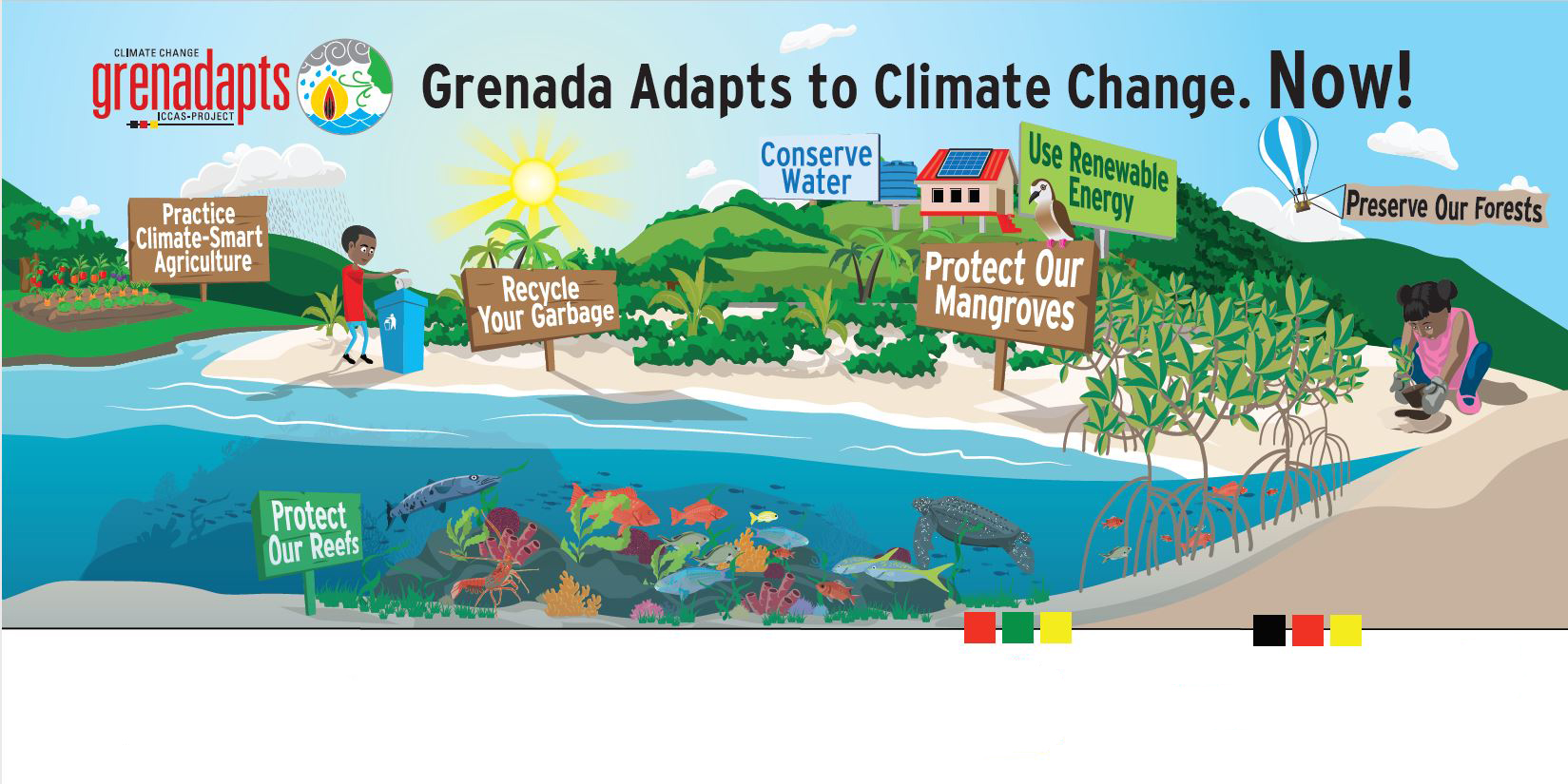
As a small island state, Grenada is particularly vulnerable to the adverse effects of projected climate change and many of the natural resources in Grenada are threatened by its impacts. In response, the overarching objective of the ICCAS Programme is to increase resilience of vulnerable communities and ecosystems to climate change risks in Grenada through integrated adaptation approaches. The Programme targets both government (including its sectoral agencies), and communities already being impacted by climate change.
Implemented by the Environment Unit of the Ministry of Agriculture, Lands, Forestry, Fisheries and Environment, the Deutsche Gesellschaft für Internationale Zusammenarbeit (GIZ) and the United Nations Development Programme (UNDP), the programme is funded by the German Ministry for the Environment, Nature Conservation, Building and Nuclear Safety (BMUB) under its International Climate Initiative (IKI).
UNDP-supported programme efforts include:
- Increasing the adaptive capacity of communities through the implementation of concrete community-based adaptation activities and incentives in the islands of Grenada, Carriacou and Petite Martinique;
- Strengthening the understanding and awareness of climate change risks and adaptation measures (adaptation plan);
- Disseminating lessons learned and best practices at the local, national, regional and international levels.
- National
- National Governments
- Environment Unit of the Grenada Ministry of Agriculture, Lands, Forestry, Fisheries and Environment
- Government of Grenada
- United Nations Development Programme (UNDP)
- Federal Ministry for the Environment, Nature Conservation and Nuclear Safety (BMU)
- Deutsche Gesellschaft für Internationale Zusammenarbeit (GIZ) GmbH
Grenada, Carriacou and Petite Martinique or the State of Grenada, is a Small Island Developing State (SIDS), located on the Southeastern Caribbean. With shores washed by both the Atlantic Ocean and the Caribbean Sea, Grenada as all SIDS is particularly vulnerable to the adverse effects of climate change. For example, extreme climate related events such as hurricanes are projected to be intensified by climate change. In fact, Grenada experienced two (2) recent major droughts, which had substantial adverse effects on water resources and the agriculture sector. Projections indicate a strong likelihood of reduced annual rainfall as well as sea level rise.
With these current and projected adverse effects, the island state of Grenada, needs to adapt. But while Grenada has developed many policies and strategies relating to climate change, a strategic and comprehensive approach to adaptation, which includes the coordination across sectors and the implementation of concrete measures, is needed.
The Integrated Climate Change Adaptation Strategies or ICCAS Program, is designed to provide a holistic approach to climate change adaptation in the State of Grenada. The overall aim of the ICCAS Program is to increase resilience of vulnerable communities and ecosystems to climate change risks on all three islands: Grenada, Carriacou and Petite Martinique. The project uses a comprehensive, integrated approach for analyzing and implementing adaptation strategies. This model it is hoped, can serve as a role model for other countries and regions.
The ICCAS Program is implemented by the Government of Grenada, the United Nations Development Program (UNDP) and the Deutsche Gesellschaft fur InternationaleZusammenarbeit (GIZ). The GIZ is a German federal enterprise that supports the German Government in achieving its objectives in the field of international cooperation for sustainable development. The ICCAS Program is also a part of the International Climate Initiative (IKI) . The German Federal Ministry for the Environment, Nature Conservation, Building and Nuclear Safety (BMUM) supports the IKI on the basis of a decision adopted by the German Parliament (Bundestag).
The Ministry of Agriculture, Lands and Environment of the Government of Grenada, through its Environment Division, is directly responsible for program implementation. However, the Program engages with a variety other Government Ministries (e.g. Ministry of Education), academia and communities, especially those already being impacted by climate change. True to its name, the Program pursues and integrates, a multi-sectoral approach, linking local activities to notational measures and vice versa. For example, the National Climate Change Committee is being advised on the development of systematic risk analyses to identify susceptible coastal zones in the country and on how to increase their resilience to climate change.
- A community based climate change adaptation fund, which provides direct support for the population involved in small-scale adaptation measures (Implemented by the UNDP)
- An integrated water resource and coastal zone management component (Implemented by the GIZ)
- The mainstreaming of climate change adaptation considerations into the national planning process (Implemented by GIZ)
- Promotes measures to enable Grenada to access climate finance for adaptation activities in the long term (Implemented by GIZ) and raises awareness and knowledge of climate risks Iimplemented by the UNDP)
Protein from waste by Climate Adaptation UNDP on Exposure
National Energy Globe Award Grenada 2018
Energy Globe
Wednesday 8 August 2018
High Protein Animal Feed from recycled organic Waste Protein from Waste [PFW] is a unique and fully engineered facility that operates every day processing animal, fish and brewery waste by cooking it at 250 degrees Celsius until it is dry and free from pathogens for animal feed production. The cooking process is energy intensive; however, the company has overcome its economy of scale with a unique technology that converts recycled oil into a clean burning cooking fuel. Prior to the implementation of the Protein from Waste plant, Grenada was plagued with several major environmental, economic and social challenges. The indiscriminate dumping of hazardous waste oil which was fouling land, water and coastal resources while decomposition of organic waste led to the increase in air pollution by methane gas. The solution is to convert organic waste such as animal, fish and brewery waste into high grade protein feed for animals. Waste oil is used to produce steam for cooking the organic waste at high temperature. In other words, motor oil is converted into cooking fuel. It thereby makes the process more sustainable. In another process called “rendering,” water is removed from the processed waste so that it can be bagged and have a workable shelf-life as animal feed. The organization’s innovation is that their facility is the world’s smallest and the first rendering plant. They have fully proven their unique concept of using used motor oil as a fuel to render organic wastes into valuable products that benefit agriculture. The process also included boilers that are clean burning and capable of supplying energy made from burning used lubricating oils.
Carriacou Fisher Folk - Development Resilience Improving Fishing Techniques & Adaptation Training
Climate Kids Books- Climate Change Children's Books And Mobile Application
Ocean Spirits Inc - Strengthening ecosystems resilience in the Levera RAMSAR site Grenada
School for Special Education- Rain Water Harvesting for Gardening Purpose
Video
See more videos from the ICCAS project.
Mission
The overarching goal of the programme is to increase resilience of vulnerable communities and ecosystems to climate change risks in Grenada through integrated adaptation approaches.
Component 3:
- Setup and operationalizing of the Community Climate Change Adaptation Fund (CCCAF): The aim of CCCAF is to provide financing for community based projects of a climate adaptation nature that includes activities related to agriculture, fishing, tourism, health, water, education and awareness, marine and coastal areas, livelihoods and others. Through a full range of community engagement and outreach the CCCAF was established and launched with 162 community groups responding with application for small grant for adaptation projects. So far the National Climate Change Committee (NCCC) has approved 29 projects for implementation at a value of over 1 million US dollars of which 12 projects have already started with implementation activities. The Government of Grenada sees the CCCAF as a very important initiative that will not only help vulnerable communities adapt to climate change, but also will bring much needed livelihood opportunities.
- Establishment of the Operational Guidelines for CCCAF: The Operational Guidelines for the fund was developed drawing on regional and international experience. In particular, research and collaboration was done with the Global Environment Facility Small Grants Programme (GEF SGP) and the Indonesian Climate Change Adaptation Trust Fund. The total size of the fund is US $1.3 million, with individual projects being able to access financing of up to USD $50,000.
- Building Capacity for mainstreaming climate change: As part of strengthened understanding and awareness of climate change and project management a series of training was conducted for community group members, government officials and projects staff. These training included: education and awareness of climate change; project proposal development; project management; Microsoft excel and monitoring and evaluation.
- Establishment of the ICCAS Community Liaison Network (CLN): The CLN aims to ensure adequate field support for all projects from the CCCAF. In addition, the already established extension districts of the Ministry of Agriculture, Lands, Forestry, Fisheries and the Environment on mainland Grenada are utilized to ensure thorough representation and support for CCCAF projects. Furthermore, another field office is based in Carriacou to serve projects from Carriacou and Petite Martinique.
Component 4.2
To serve as a guide for all major awareness activities under the ICCAS Programme, a 'communication strategy' was developed, placing
emphasis on various target groups and dissemination methods. Subcomponents of the strategy comprised of:
- ICCAS Climate Change Walk: Three major climate change walks and exhibitions were held between May and June 2015 one each on mainland Grenada, as well as Carriacou and Petite Martinique where approxiamately 1300 persons participated. The walk was aimed at drawing awareness of the devastating impacts of Climate Change already being observed in Grenada, Carriacou and Petite Martinique and highlighting possible solutions.
- Climate Change Football Cup: This was a climate change initiative where primary schools in Carriacou and Petite Martinique (PM) competed in both an environmental project and a football competition between August to October 2015. The environmental project component serves as a mechanism for children to proactively educate themselves, their families, schools, and their communities about the importance of practicing environmental stewardship in their own environments.
- Six ICCAS climate change billboard with the “Grenada Adapts to Climate Change Now!“ branded artwork erected throughout Grenada, Carriacou and Petite Martinique.
- The ICCAS climate change video public service announcement (PSA) with the “Grenada Adapts to Climate Change Now!“ story board was aired on two television and three radio stations during the months of April to August, 2015.
- The ICCAS climate change wrapping with the “Grenada Adapts to Climate Change Now!“ artwork was placed on seven (7) public buses travelling in different bus routes in Grenada and Carriacou.
- UNDPGabor VerecziUNDP Regional Technical Advisor
- UNDPMr. Martin BarriteauProject Coordinator

